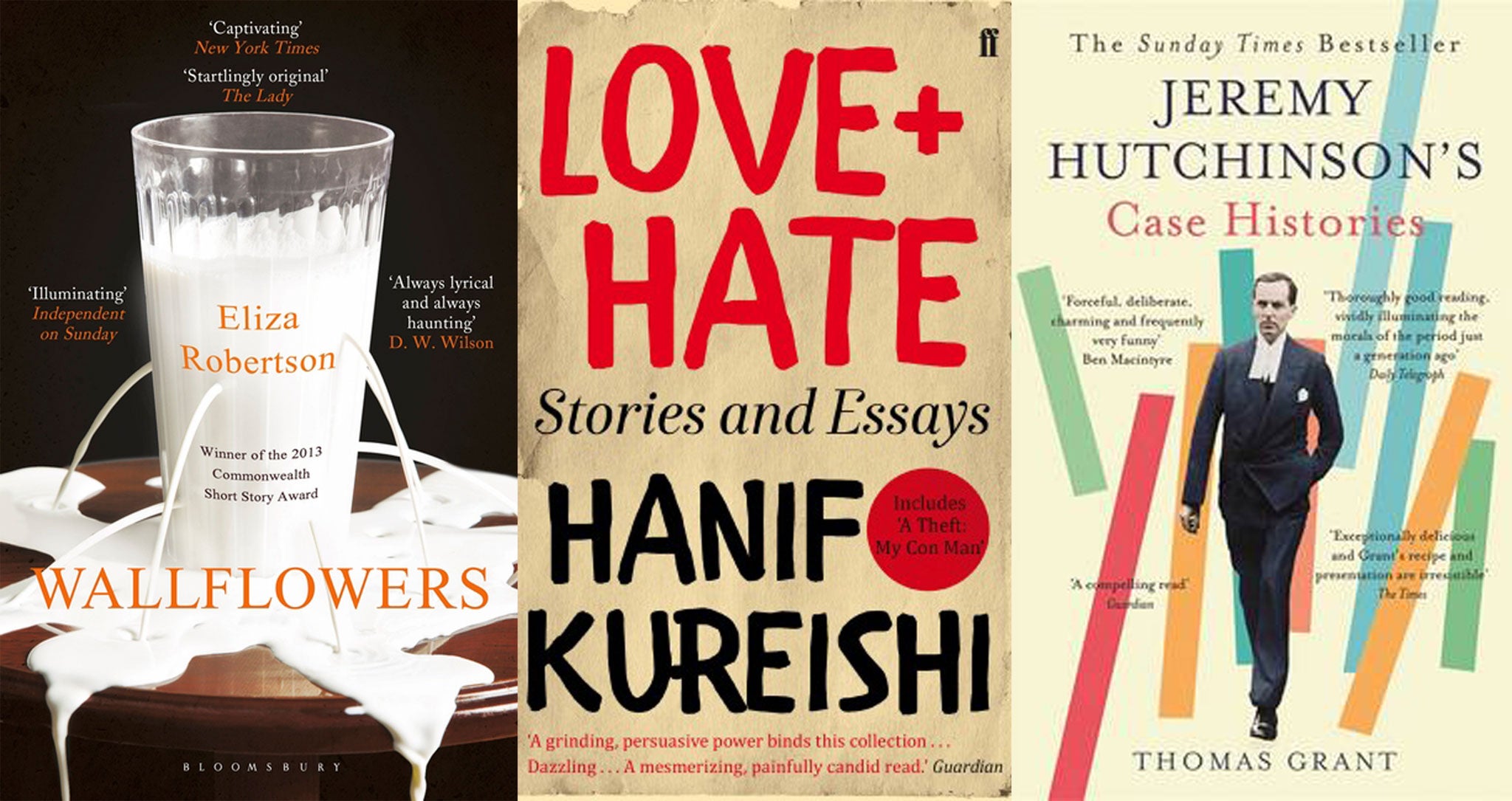Wallflowers by Eliza Robertson; Love + Hate by Hanif Kureishi; Jeremy Hutchinson's Case Histories by Thomas Grant, paperback reviews
Eliza Robertson succeeds in imagining the world afresh, Hanif Kureishi takes a long hard look at the business of creativity, and Thomas Grant charts the seismic shift in British culture between 1960 and 1984

Wallflowers by Eliza Robertson (Bloomsbury, £8.99)
Robertson's short stories are rooted in the cruel vagaries of the natural world. In the opening entry "Who Will Water The Wallflowers?" a girl cat-sits for a neighbour, sharing boiled eggs with raccoons while, unknown to her, flood waters threaten to deluge the surrounding area. In a later story, an out-patient's wheelchair inadvertently splices through a plague of caterpillars in her path. Robertson, a Canadian now living in East Anglia, delights in whimsy, but also knows when to shift her focus to more serious concerns. A young writer who succeeds in imagining the world afresh. Emma Hagestadt
Love + Hate by Hanif Kureishi (Faber & Faber, £9.99)
Last year Kureishi ruffled feathers by claiming that creative writing courses were a "waste of time". In this collection of stories and essays, he takes a long hard look at the business of creativity, arriving at the conclusion that "human weakness, in all its variety, is the only subject there is". Following his own dictum, Kureishi treats the reader to a series of bold insights into racial tension, marital tension and the "long divorce" of the teenage years. But it's the betrayal he suffered at the hands of a dodgy accountant that provides him with the most fury-provoking subject matter of all. EH
Jeremy Hutchinson's Case Histories by Thomas Grant (John Murray, £9.99)
"What joy to stand up in the Central Court and say, 'Call Mr E.M. Forster!'" Jeremy Hutchinson QC, who turns 101 in March, recalls this moment during the Lady Chatterley trial as a highlight of his career. Thomas Grant uses Hutchinson's cases to chart the seismic shift in British culture between 1960 and 1984, during which time the barrister appeared for the defence in landmark prosecutions such as Last Tango in Paris and The Romans in Britain. That we enjoy such broad artistic freedom today is partly thanks to Hutchinson, and this fascinating book reminds us why. Marcus Field
Join our commenting forum
Join thought-provoking conversations, follow other Independent readers and see their replies
Comments